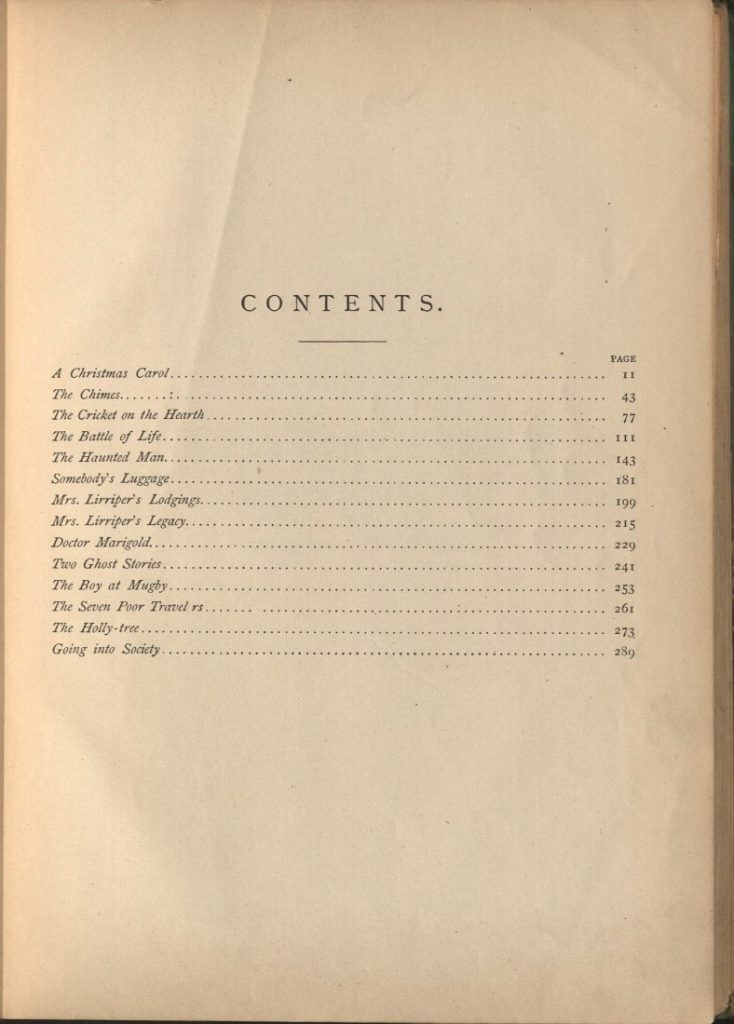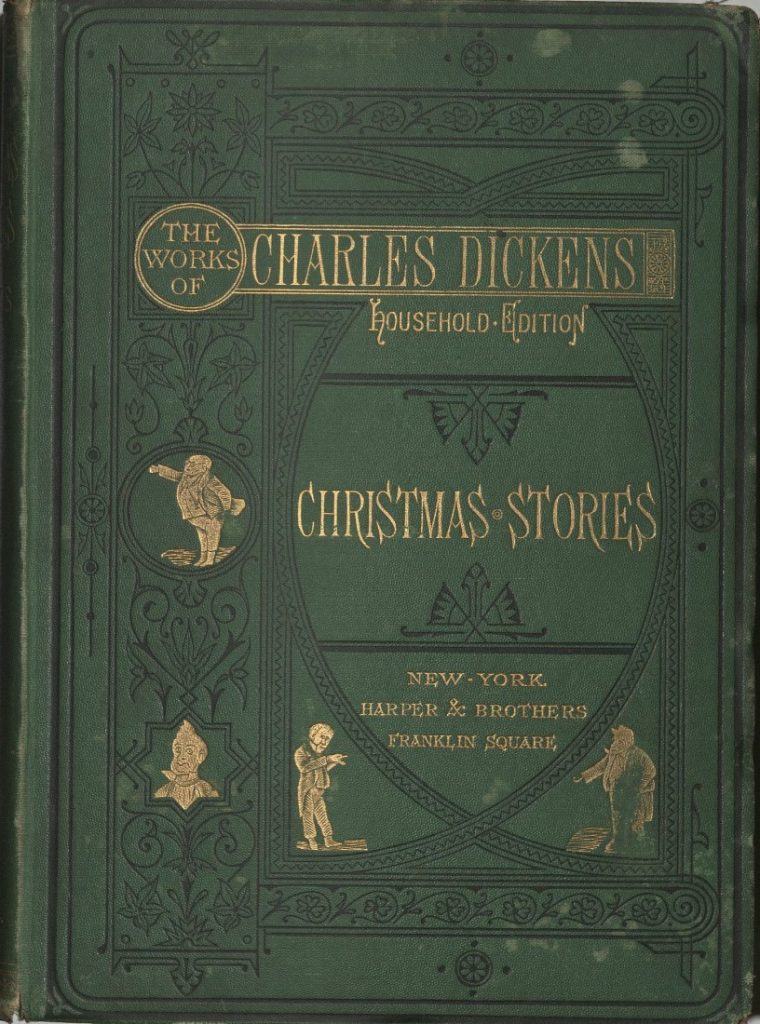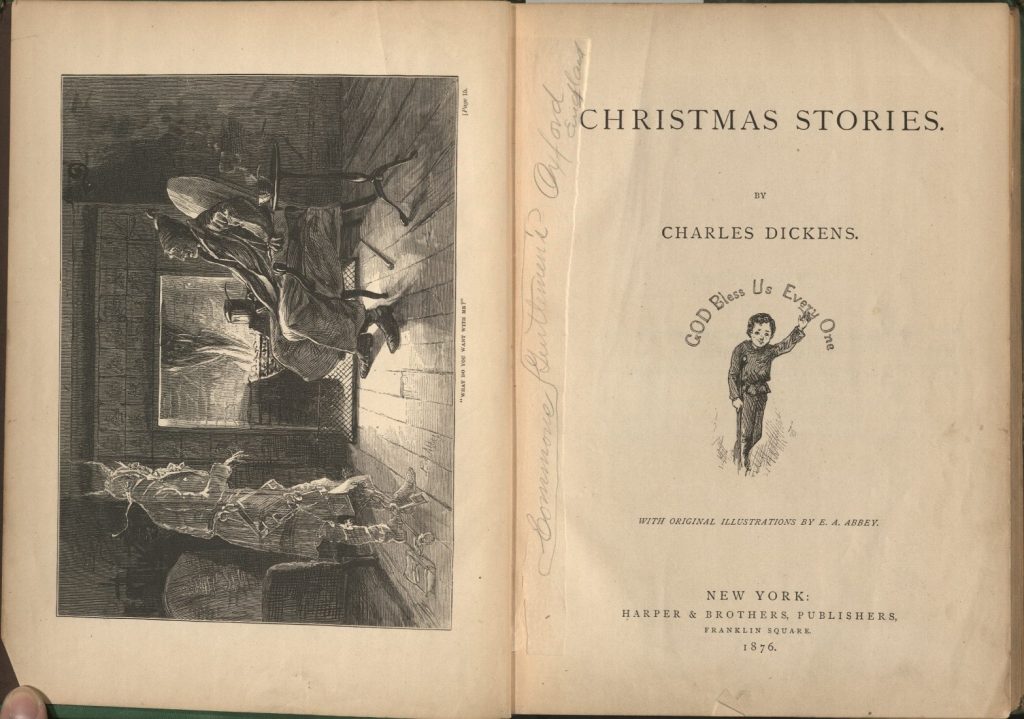That’s Distinctive!: Christmas Stories by Charles Dickens
December 22nd, 2023Check the blog each Friday for a new “That’s Distinctive!” post. I created the series because I genuinely believe there is something in our collections for everyone, whether you’re writing a paper or just want to have a look. “That’s Distinctive!” will provide a more lighthearted glimpse into the diverse and unique materials at Spencer – including items that many people may not realize the library holds. If you have suggested topics for a future item feature or questions about the collections, feel free to leave a comment at the bottom of this page.
In honor of the upcoming Christmas holiday, this week on That’s Distinctive! I share the book Christmas Stories by Charles Dickens (1812-1870), with illustrations by A. E. Abbey. Published in 1876, this particular printing was a part of a posthumous series, The Works of Charles Dickens: Household Edition. The volume includes 14 stories.
The first story in the book, A Christmas Carol, was first published 180 years ago in 1843. It’s a story of an elderly miser (Ebenezer Scrooge) transformed into a kinder man after he is visited by the ghost of his deceased business partner Jacob Marley and the ghosts of Christmas Past, Present, and Yet to Come. Beloved by many, the story has had many adaptations including theatrical productions, movies, animations, and operas. The book is available online through the Library of Congress. Spencer Research Library also houses a first edition copy of the book.
Other stories in the book include The Cricket on the Hearth, The Holly-tree, and The Haunted Man. Published in 1848, The Haunted Man is similar to A Christmas Carol. As described by the Charles Dickens Museum, it is “a story of ghosts and redemption. The protagonist and chemist, Professor Redlaw, is a haunted man. He is followed by a spectre who looks exactly like him. But what if he could get rid of all his sadness and despair? Redlaw strikes a ghostly bargain and suffers the consequences; is living without sorrow really worth it?” A copy of the book can be read via Gutenberg.org.

Tiffany McIntosh
Public Services


